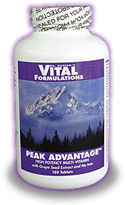 Supplements of multivitamins and minerals may help reduce body weight and improve blood fat levels, according to results of a clinical trial in obese Chinese women.
Supplements of multivitamins and minerals may help reduce body weight and improve blood fat levels, according to results of a clinical trial in obese Chinese women.
Results of a 26-week randomized, double-blind, placebo-controlled intervention study with 87 women found that multivitamins and minerals were associated with significantly lower body weight, body mass index, and fat mass
Levels of total cholesterol and LDL-cholesterol were also significantly reduced, while HDL-cholesterol were increased, according to findings published in the International Journal of Obesity.
Obesity rates have skyrocketed in the US in recent years – 15 per cent of the population was obese in 1980, compared to 34 per cent today, according to figures from the Center for Disease Control and Prevention.
If other clinical trials in other populations support the findings, it could see multivitamins and minerals touted for their weight management potential.
Multivitamin use
According to a National Institutes of Health (NIH) State-of-the-Science Panel, half of the American population routinely use dietary supplements, with their annual spend estimated at over $20 billion.
Recent results of the National Health and Nutrition Examination Survey showed that 35 per cent of the US adult population regularly consumes one or more types of multivitamin product (Am. J. Epidemiol., 2004, Vol. 160, Pages 339-349).
Study details
Ninety-six obese women aged between 18 and 55 were recruited to participate in the study, with 87 completing the 26 weeks of intervention. Women were randomly assigned to one of three groups: One received a multivitamin and mineral supplement; the second received a calcium supplement (162 mg per day); and the third received an identical placebo.
Led by Professor CH Sun from the Department of Nutrition and Food Hygiene at Harbin Medical University, the Chinese researchers report that the multivitamin and mineral group lost an average of 3.6 kg of body weight, compared to 0.9 kg and 0.2 kg for the calcium and placebo groups, respectively.
In addition, significant reductions in BMI and waist circumference were observed in the multivitamin and mineral group, while the changes in the other groups were not significant.
“To our knowledge, this study is the first to evaluate the effects of multivitamin and mineral supplementation on lipid profile in obese subjects,” wrote the researchers.
Calcium and dairy
On the other hand, the calcium group only experienced cholesterol improvements, with HDL levels increasing and LDL decreasing, compared with the placebo group.
This last point taps into a different debate, which has focussed on the potential of dairy to aid weight loss.
A relationship between dairy intake and weight reduction has been recorded in numerous studies, and dairy industries in Europe and the US have been promoting milk-based products for consumers who want to slim for some time. The subject, however, remains controversial.
There are even splits within the dairy camp, with some arguing that calcium and vitamin D are the active nutrients behind the effects. One of the lead researchers in this are, Dr Michael Zemel from the University of Tennessee, has previously said that dairy can help reduce body fat and that calcium only accounts for about 40 per cent of the effect.
By Stephen Daniells, 25-Feb-2010
Published at: Nutraingredients.com/Research
Source: International Journal of Obesity
Published online ahead of print, doi:10.1038/ijo.2010.14
“Effects of multivitamin and mineral supplementation on adiposity, energy expenditure and lipid profiles in obese Chinese women”
Authors: Y. Li, C. Wang, K. Zhu, R.N. Feng, C.H. Sun

